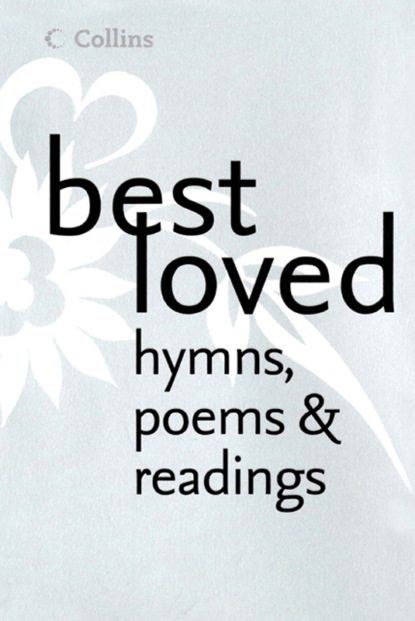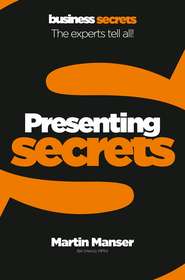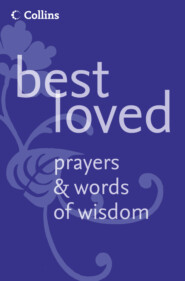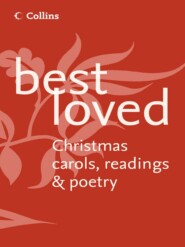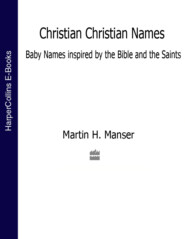По всем вопросам обращайтесь на: info@litportal.ru
(©) 2003-2024.
✖
Best Loved Hymns and Readings
Настройки чтения
Размер шрифта
Высота строк
Поля
and needy.
A capable wife who can find? She is far more precious than jewels.
The heart of her husband trusts in her, and he will have no
lack of gain.
She does him good, and not harm, all the days of her life.
She seeks wool and flax, and works with willing hands.
She is like the ships of the merchant, she brings her food
from far away.
She rises while it is still night and provides food for her
household and tasks for her servant-girls.
She considers a field and buys it; with the fruit of her hands
she plants a vineyard.
She girds herself with strength, and makes her arms strong.
She perceives that her merchandise is profitable. Her lamp
does not go out at night.
She puts her hands to the distaff, and her hands hold the spindle.
She opens her hand to the poor, and reaches out her hands
to the needy.
(New Revised Standard Version)
Father, hear the prayer we offer (#ulink_4530054c-4719-5cf6-a554-5faf75d2bf49)
Love Maria Willis was a doctor’s wife of Rochester, Mew York. Though a popular choice of hymn, the rendering of Psalm 23 in this hymn has raised some eyebrows over the years with its apparent contempt for the ‘green pastures’ and ‘still waters’ of the biblical source. In reality, the original psalm does not recommend the quiet life over one of righteous struggle.
Father, hear the prayer we offer;
Not for ease that prayer shall be,
But for strength that we may ever
Live our lives courageously.
Not for ever in green pastures
Do we ask our way to be;
But the steep and rugged pathway
May we tread rejoicingly.
Not for ever by still waters
Would we idly rest and stay;
But would smite the living fountains
From the rocks along our way.
Be our strength in hours of weakness,
In our wanderings be our guide;
Through endeavour, failure, danger,
Father, be Thou at our side.
Love Maria Willis (1824-1908)
A father’s advice to his son (#ulink_e2daa1da-666e-5f69-b9a0-0f78db3966df)
Sir Henry Sidney served two terms as Lord Deputy of Ireland but is usually remembered today as the father of the celebrated soldier-poet Sir Philip Sidney. His parental advice, offered in a letter to his son while he was at school in Shrewsbury in 1556, has been much repeated over the centuries.
Son Philip,
I have received two letters from you, one written in Latin, the other in French: which I take in good part, and will you to exercise that practice of learning often; for that will stand you in most stead in that profession of life that you are born to live in. And now, since this is my first letter that I ever did write to you, I will not that it be all empty of some advice which my natural care of you provoketh me to wish you to follow, as documents to you in this your tender age.
Let your first action be the lifting up of your mind to Almighty God by hearty prayer; and feelingly digest the words you speak in prayer, with continual meditation and thinking of Him to whom you pray, and of the matter for which you pray. And use this as an ordinary act, and at an ordinary hour; whereby the time itself shall put you in remembrance to do that you are accustomed to do in that time.
Apply your study to such hours as your discreet master doth assign you earnestly…And mark the sense and the matter of that you do read as well as the words; so shall you both enrich your tongue with words and your wit with matter, and judgment will grow as years grow in you. Be humble and obedient to your masters, for, unless you frame yourself to obey others – yea, and feel in yourself what obedience is, you shall never be able to teach others to obey you. Be courteous of gesture and affable to all men, with diversity of reverence according to the dignity of the person; there is nothing that winneth so much with so little cost.
Use moderate diet so as, after your meal, you may find your wit fresher, and not duller, and your body lively and not more heavy. Seldom drink wine, and yet sometimes do, lest, being enforced to drink upon the sudden you should not find yourself enflamed. Use exercise of body; yet such as is without peril to your bones or joints.
Above all things tell no untruth; no, not in trifles. The custom of it is naughty…For there cannot be a greater reproach to a gentleman than to be accounted a liar. Study and endeavour yourself to be virtuously occupied. So shall you make such a habit of well-doing in you as you shall not know how to do evil, though you would.
Your Loving father, so long as you fear God.
Sir Henry Sidney (1529-86)
Fight the good fight (#ulink_3edc2976-9856-5147-a83a-2a5547ae2d99)
The work of John Monsell, Rector of St Nicholas in Guildford, this hymn has remained one of the most popular rallying cries of the Christian church, particularly associated with the Salvation Army. Monsell himself literally gave his life in the service of his calling, dying in an accident while inspecting repairs to the roof of his church. He was a great believer in providing rousing tunes for public worship and criticized the reserve of much church music. His other hymns include ‘0 worship the Lord in the beauty of holiness’.





